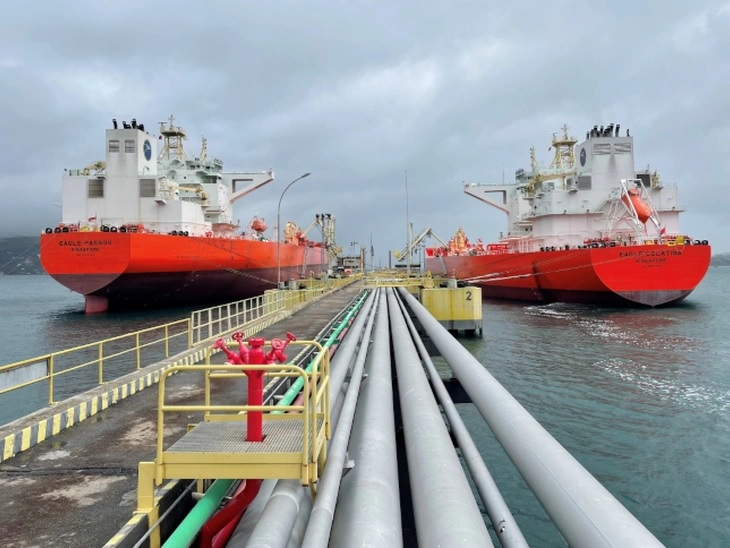
 Offshore
Offshore
T&B Petroleum/Petrobras Agency

The Suezmax DP2 Eagle Colatina relief vessel arrived in Brazil, the first of three Eco Type ships built to reinforce the fleet of more sustainable ships for the relief of oil platforms operated by Petrobras. With a deadweight of 155 thousand tons, the Eagle Colatina, which docked at the Port of Rio de Janeiro at the end of May, is built with eco-efficient technologies and will contribute to the reduction of carbon emissions in maritime transport, in addition to reinforcing the fleet of relief vessels at a strategic time for the company, adding operational safety, reliability and value to Petrobras' offloading operations.
In addition to the Eagle Colatina, Petrobras will receive two more sustainable vessels for its fleet of relief vessels - the Eagle Cambe and the Eagle Crato, which will be delivered by the end of this year.
Petrobras has been investing in the contracting of sustainable ships, known as Eco Type, which today already represent around 37% of the fleet of ships contracted by the company. These are vessels built from 2015 onwards, with an improved construction project to comply with the energy efficiency improvement measures established by the International Maritime Organization (IMO/IMO), which aim to reduce fuel consumption and gas emissions into the atmosphere. With this, the company reaffirms its commitment to reduce greenhouse gas emissions by 25% by 2030 and achieve the neutrality of these emissions in the operations under its control.
The difference lies in the technologies applied in the construction of these ships, with equipment and engines developed to help save energy and in the improved design, which allows reducing the vessel's weight and resistance in the water. According to a study carried out for the MR2 class of ships, capable of transporting an average of 50 thousand tons of oil derivatives, there was a reduction in average consumption of about 24% of fuel per ton x mile, when compared to conventional vessels of the same class. These vessels operate in cabotage operations, import, export and relief of platforms in deep and ultra-deep waters off the Brazilian coast, carrying oil and derivatives such as diesel, gasoline and fuel oil.
“Eco Type ships are used more and more frequently in our fleet and our teams have been looking for new options to reduce emissions, in addition to structuring charter models that stimulate the efficiency of vessels, as part of the Company’s decarbonization strategy,” he says. Rafael Noac, Executive Manager of Logistics at Petrobras.
"This is a global trend and other companies should adapt in the coming years. With the implementation of new regulations for the decarbonization of maritime transport by the IMO/IMO, scheduled to take place from 2023, all conventional vessels will have to carry out some type of technical modification to become more sustainable", adds Rafael Noac.
Contact us